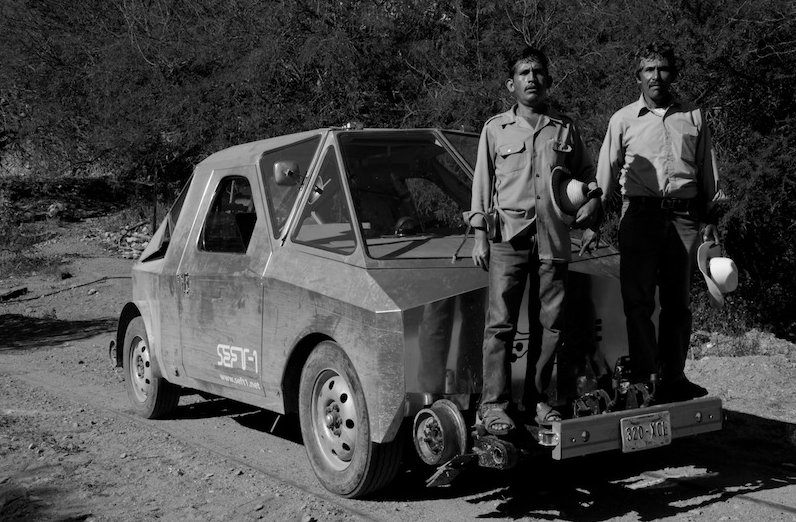by Nahum Mantra
- Published: Thursday, May 22 2014 21:54
I grew up in Mexico, a country with little context for space exploration. Until recently, we didn't have a space agency or any important participation in the space race. We can almost say there was no context to be involved in space activities. I realised during the first KOSMICA Mexico how far and how close this country was from conquering the stars. I remember how a young artist questioned about what were her possibilities of making space arts projects when she didn't have access to space labs and space professionals. For a moment I thought she was right, but after a second thought I realised that sitting next to me was a Mexican guy building a civilian satellite, a woman artist collaborating with astronomers and a duo of artists that had constructed a space car the navigates in forgotten railway tracks.
I don't believe space participation is restricted to the nations that can afford it. This is the way that Nicola Triscott puts it:
“It is time to develop and realise an alternative vision of space exploration for a new global space age. A vision that understands that space is not just the preserve of NASA and the West but is rooted historically in cultures across the globe.”

Caption: SEFT-1 http://www.seft1.net/
I'm very interested in seeing how people from developing countries are relating themselves to space nowadays. I believe the adventure is happening with these groups of people that are appropriating space in ways that make us rethink space activities - this is the wonder of perspective.
For already some time, afrofuturism has used space metaphors to understand topics such as colonialism, race and identity. Let’s remember how Parliament Funkadelic’s mothership landed in front of ecstatic audiences. They were aliens in the American society; they were seeded there and longed to go back to their land.
There is a fantastic performance by Kapwani Kiwanga called Afrogalactica that explores afrofuturism and its role in developing the United States of Africa Space Agency. Also, recently I came across the work of the Kongo Astronauts and to be honest I would like to meet this guy soon.
Another interesting group is Movimiento Sin Satélite in Brasil. This group met last year to discuss different approaches to appropriate space in order to generate a series of debates. This encounter was organised by Nuvem, a rural station for arts and technology.
The list of examples could go on and on with projects in India, Lebanon, the Caribbean, Asia, etc. I think it’s here where the new reflections about our role in space will emerge through fresh views and new critical approaches. After all, we are all in space, and you don’t need to be invited to participate.








Comments